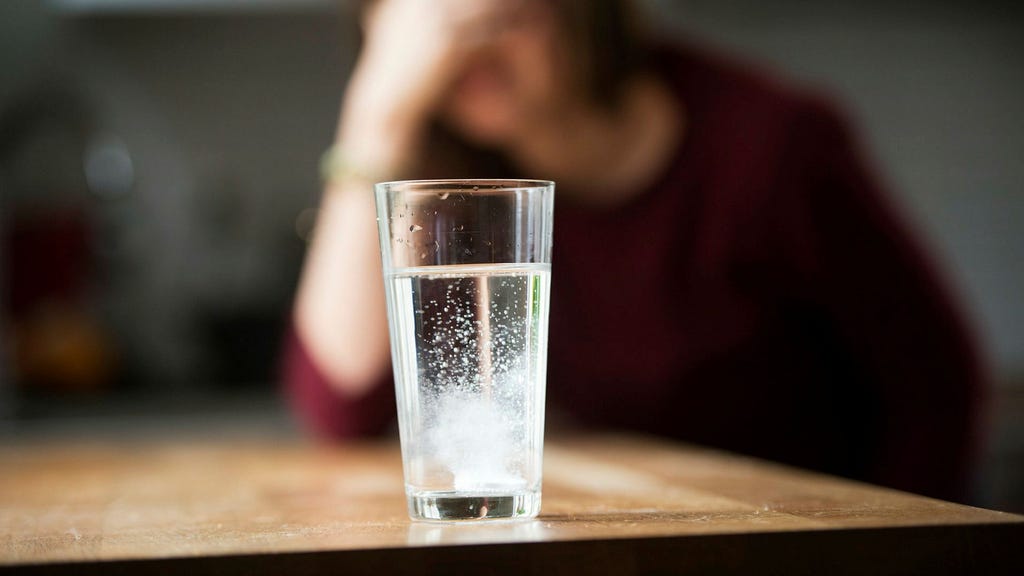The morning after a night of indulging in alcohol often brings with it a familiar, unwelcome guest: the hangover. Symptoms range from a pounding headache and nausea to overall fatigue and dehydration, leaving sufferers desperate for relief. This universal experience has fueled a burgeoning market for hangover cures, often in the form of pills or supplements promising to alleviate the misery. But do these remedies genuinely work, or are they just a placebo for the regretful?
Dr. Kaarlo Simojoki, a specialist and researcher with over two decades of experience in addiction care, sheds light on the efficacy of these popular hangover cures. He observes a continuous cycle of new products emerging with varying ingredients and brand names, all claiming to offer a solution to the morning-after woes. Many of these products focus on aiding the body in breaking down acetaldehyde, a byproduct of alcohol metabolism often blamed for hangover symptoms. They often contain amino acids like L-cysteine, or various types of bacteria, purporting to assist the body in processing this unwelcome compound.
Dr. Simojoki, however, remains skeptical, pointing to the lack of substantial evidence supporting these claims. Even if these products did offer some relief, he emphasizes, they wouldn’t address the underlying harmful effects of alcohol on the body. He cites a 2020 Finnish study where L-cysteine appeared to alleviate hangover symptoms in a small group of participants. This finding has led to the increased use of supplements containing this amino acid, such as Acetium. Other products like the Swedish Myrkl, containing L-cysteine, vitamin B12, and bacteria strains, and the American Zbiotics, with its genetically modified bacteria producing an acetaldehyde-breaking-down enzyme, have also entered the market.
Dr. Simojoki criticizes the small scale of these studies, rendering their results inconclusive. Furthermore, he argues that they miss a crucial point: acetaldehyde plays a minor role in the overall hangover experience. The liver processes this byproduct rapidly, meaning one would have to consume excessive amounts of alcohol for acetaldehyde to accumulate significantly. He attributes the hangover primarily to the body’s withdrawal from alcohol. During drinking, the nervous system adapts to the presence of alcohol. As the alcohol levels drop, the nervous system must readjust, leading to the unpleasant symptoms associated with a hangover.
Beyond the nervous system’s readjustment, dehydration and disrupted sleep contribute significantly to the hangover experience. Alcohol inhibits the production of antidiuretic hormone, leading to increased urination and fluid loss. Furthermore, while alcohol may initially induce drowsiness, it disrupts later sleep stages, leading to poor quality rest and further exacerbating hangover symptoms. Dr. Simojoki argues that even if a pill could completely eliminate the hangover, it wouldn’t be desirable. He views the hangover as a natural deterrent against excessive drinking, a built-in consequence that reminds us of the physiological strain alcohol places on our bodies. Research suggests that individuals who experience fewer or less severe hangovers are more prone to developing alcohol problems.
Ultimately, Dr. Simojoki advocates for a simple, cost-effective approach to minimizing hangovers: moderation and hydration. Drinking less alcohol, consuming plenty of water, eating a proper meal before or while drinking, and prioritizing adequate sleep are the most effective strategies. These measures address the core issues contributing to hangovers: minimizing the initial impact of alcohol on the nervous system, mitigating dehydration, and ensuring restorative sleep. While the allure of a quick fix in a pill may be tempting, the true solution lies in responsible alcohol consumption and supporting the body’s natural recovery processes.














